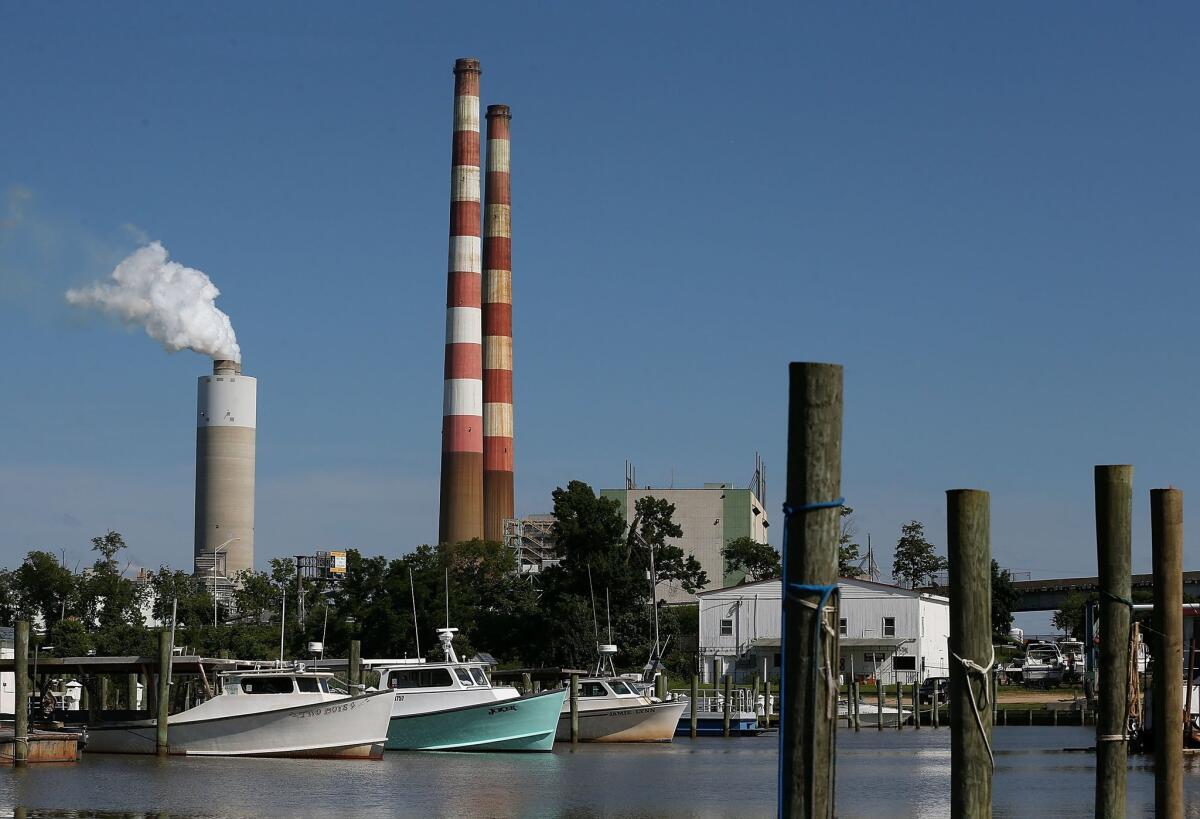Why an economic recession could be good for the planet

Emissions spew out of a large stack at the coal-fired Morgantown Generating Station in Newburg, Md.
- Share via
The economic recession of 2008-2009 may have hurt your bank account, but new analysis suggests it was good for the planet.
It turns out that when people don’t have the cash to purchase new things it can have a significant effect on the amount of carbon dioxide that gets pumped into the atmosphere through the burning of fossil fuels, according to a study in Nature Communications.
Not that anyone is suggesting that a sluggish economy is the only way to reduce emissions.
“Saying we should we have a recession to save the environment is a flippant conclusion,” said Klaus Hubacek, a professor of geographical sciences at the University of Maryland who worked on the paper. “But if we want to manage emissions, we need to think of different ways to grow the economy.”
The team did not set out to prove that consumption patterns were the main drivers of carbon dioxide emissions.
“The extent to which the per-capita consumption was the driver for C02 decrease right after the recession was a big surprise to us,” he said. “We weren’t looking for it.”
Rather, Hubacek and his co-authors wanted to know exactly what factors played the most important role in an unprecedented drop in U.S. carbon emissions between 2007 and 2013. After decades of steady increases, CO2 emissions dropped by 11% between those years.
The significant drop coincided with new innovations in fracking, which led the U.S. to shift from using coal for electricity production and toward lower-carbon natural gas instead. Some institutions have concluded that the shift from coal to gas was responsible for the drop in carbon dioxide emissions, but the new report finds that is not the case.
The most substantial decrease in emissions (9.9%) occurred between 2007 and 2009, the researchers found. During that time, 53% of the emissions reduction was due to a steep decline in the volume of consumed goods. Another 18% to 25% of the drop was related to a decrease in capital expenditures and exported goods. Changes to the fuel mix of the energy sector was responsible for 17% of the initial drop.
The researchers conclude that the change in fuel mix is responsible for a relatively small portion of the change.
“The real heroes are consuming less and using energy more efficiently,” said Steven Davis, assistant professor of Earth system science at UC Irvine and a co-author of the study, in a statement.
Dan Kammen, a professor in the Energy and Resources Group at UC Berkeley who was not involved with the study, said the findings were sound.
“The study looks accurate and it is not surprising given the lack of large-scale clean energy deployment in the first part of that time-window,” he said. “Now, going forward, things are likely to look quite different given the dramatic ramp-up of the clean energy industry.”
Science rules! Follow me @DeborahNetburn and “like” Los Angeles Times Science & Health on Facebook.







